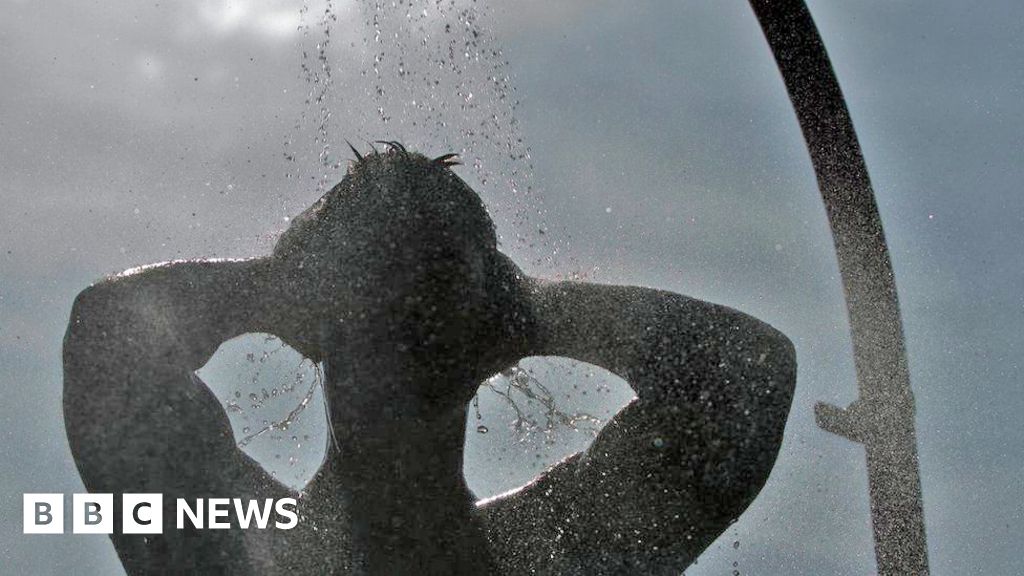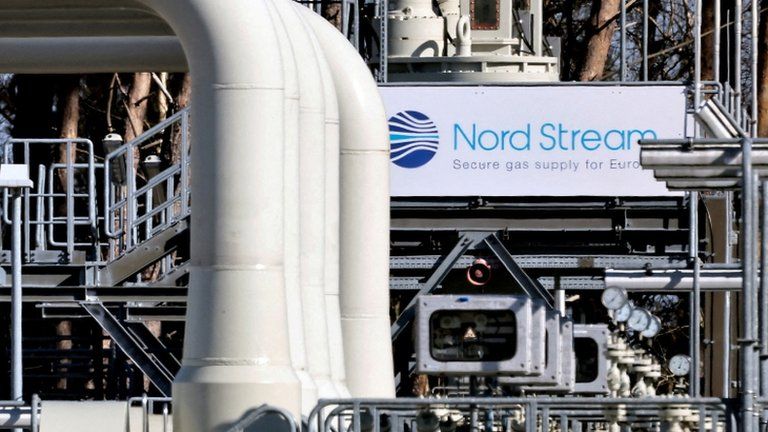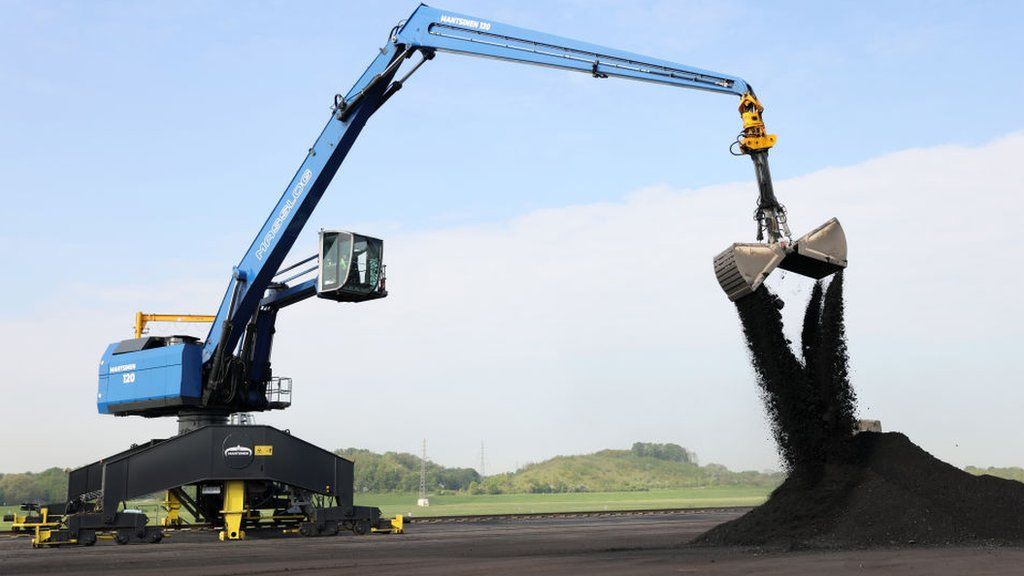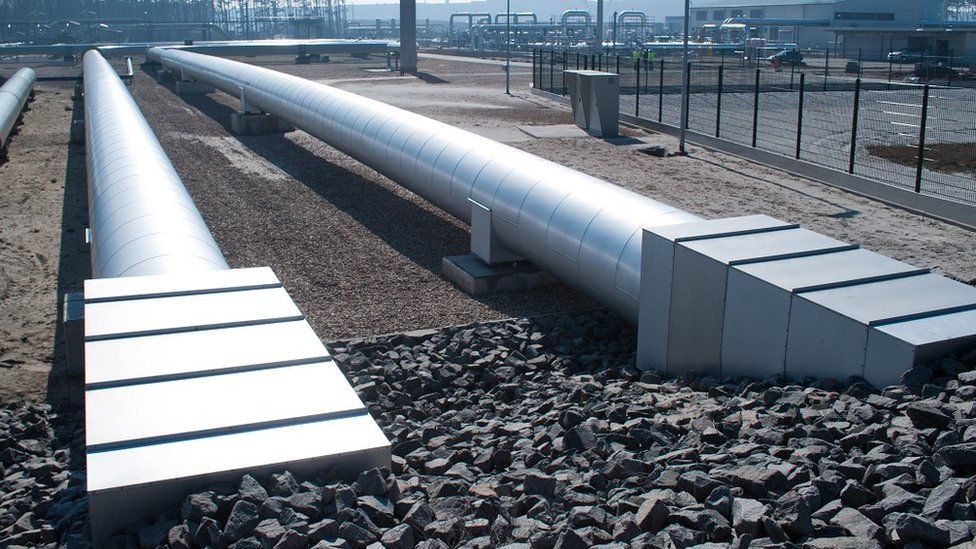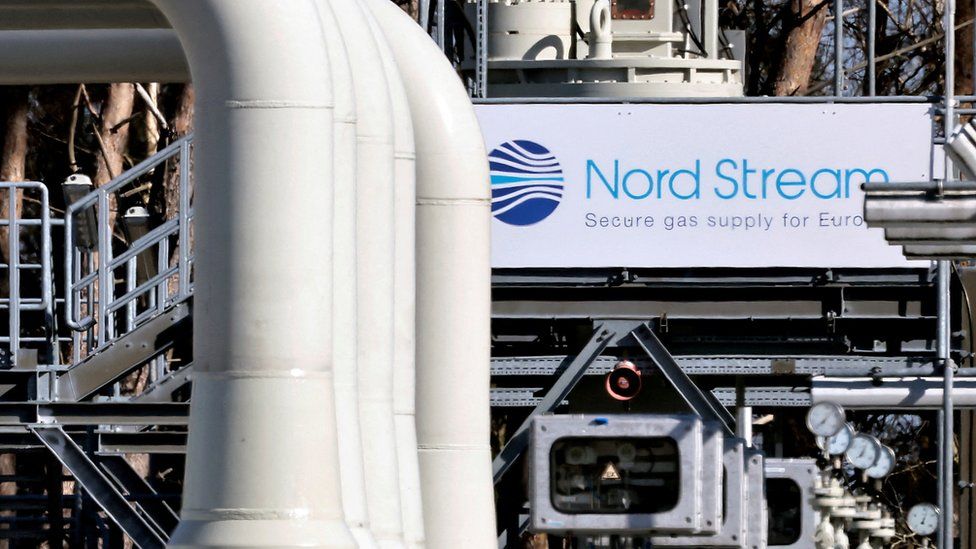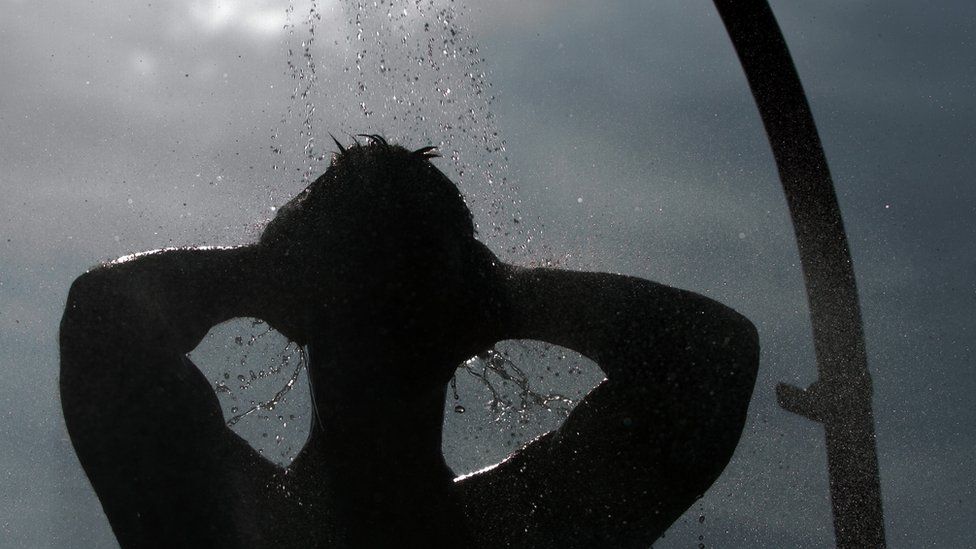 Getty Images
Getty ImagesThe German city of Hanover has turned off the heating and switched to cold showers in all public buildings because of the Russian gas crisis.
It’s the first big city to turn off the hot water after Russia dramatically reduced Germany’s gas supply.
Germans have been told to expect sweeping gas reduction measures and extra charges on their energy bills.
And the EU has agreed to lower demand for Russian gas this winter by 15%.
In a bid to save energy, Germany’s northern city of Hanover has decided hot water will no longer be available for hand washing in public buildings, or in showers at swimming pools, sports halls and gyms.
Public fountains are also being switched off to save energy, and there will be no night-time lights on major buildings such as the town hall and museums.
Mayor Belit Onay said the goal was to reduce the city’s energy consumption by 15% in reaction to an “imminent gas shortage” which posed a significant challenge for big cities.
The rules apply to heating, too. Public buildings will not have any heating from April to the end of September each year, with room temperatures limited to a maximum of 20C for the rest of the year – with some exemptions.
The city is also banning portable air conditioners, heaters and radiators.
The policy is in line with announcements from Berlin last week, as Germany races to build up its reserves ahead of the winter. Other cities – such as Augsburg in Bavaria – have already introduced their own measures such as turning off public fountains.
The 15% reduction target in Hanover matches the EU-wide goal to reduce reliance on Russian gas.
And on Thursday, Germany confirmed that a planned gas surcharge on customers could be much higher than previously expected, to try to ensure energy companies do not go bankrupt in the coming months. “We can’t say yet how much gas will cost in November, but the bitter news is it’s definitely a few hundred euros per household,” said Economy Minister Robert Habeck.
Some reports said the levy could cost families an extra €500 (£420) a year.
Germany has long relied on Russian gas for its energy needs but has recently accused Russia of restricting the flow in retaliation for EU sanctions over the war in Ukraine – something Russia denies.
Russian gas supplies now account for about a quarter of the nation’s needs, compared with more than half before the war.
This video can not be played
To play this video you need to enable JavaScript in your browser.
-
-
1 day ago
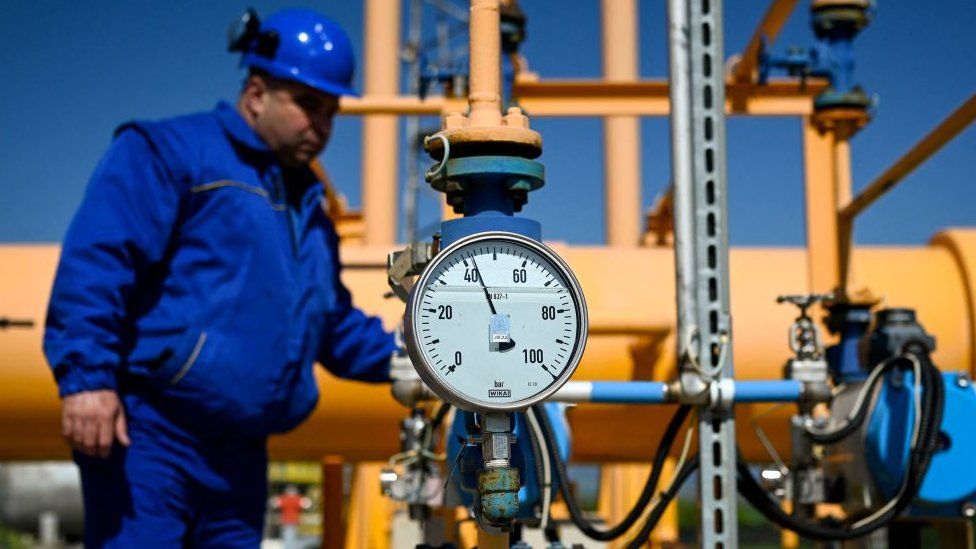
-
